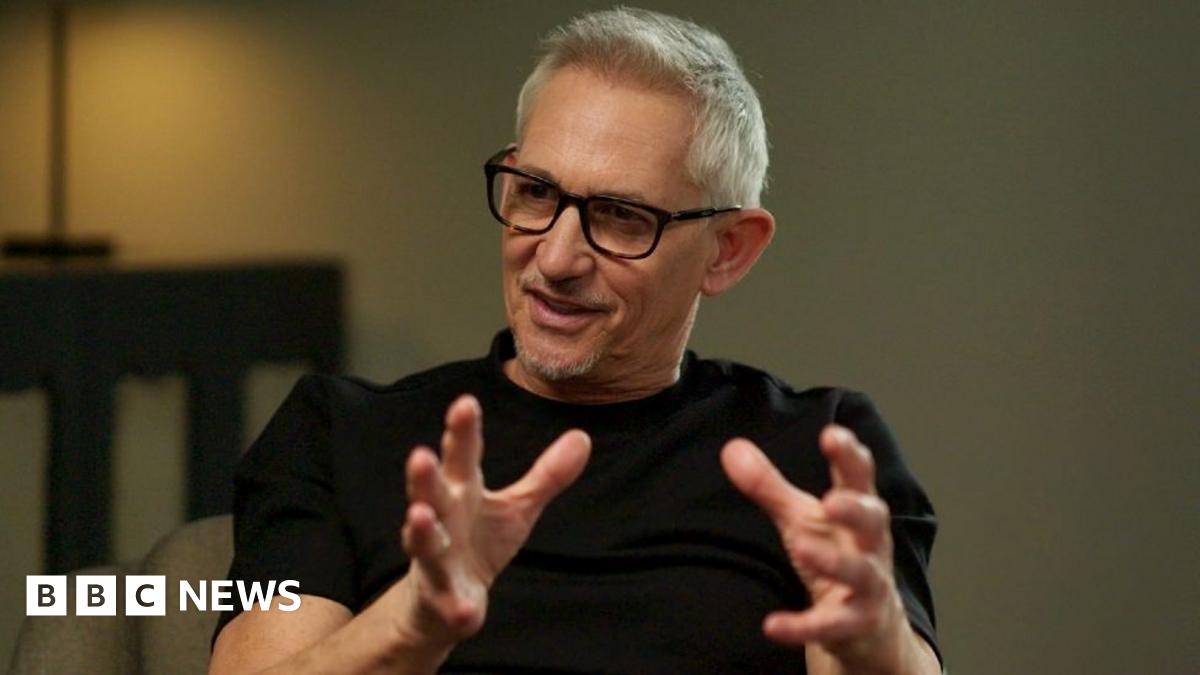Lineker: Did the BBC Really Want Him Out of Match of the Day? A Deeper Dive into the Controversy
Gary Lineker's temporary suspension from his presenting role on BBC's Match of the Day sparked a firestorm of debate and speculation. The initial trigger was a tweet criticizing the government's controversial asylum policy, leading to accusations of impartiality bias. But was the BBC's response merely a reaction to a single tweet, or was there a deeper, more calculated motive behind Lineker's removal? Let's examine the evidence and explore the swirling controversies surrounding this high-profile incident.
The Tweet That Ignited the Storm
Lineker's tweet, comparing the language used to launch the government's new asylum policy to that of 1930s Germany, was undeniably provocative. It immediately drew criticism from various quarters, with accusations of him breaching the BBC's impartiality guidelines. While the BBC’s own internal guidelines are not publicly accessible in their entirety, the corporation's emphasis on impartiality is well-documented. The question remains: was this one tweet enough to justify his removal from a flagship program?
The BBC's Response and the Subsequent Fallout
The BBC's decision to temporarily suspend Lineker led to a wave of unprecedented consequences. Numerous pundits and presenters, including Ian Wright and Alan Shearer, boycotted the show in solidarity, resulting in significantly altered broadcasts. This collective action underscored the deep-seated concerns among staff and the public regarding the perceived handling of the situation. The controversy highlighted the delicate balance the BBC must maintain between freedom of speech and upholding its impartiality standards.
Was It a Planned Ouster? Conspiracy Theories and Speculation
The events surrounding Lineker's suspension fueled intense speculation. Some argue that the BBC used the tweet as a pretext to remove a high-profile presenter whose outspoken views have long been a source of tension within the corporation. Others point to the potential for Lineker's departure to be strategically planned, paving the way for a shift in the program’s direction or potentially reducing costs. While unsubstantiated, these conspiracy theories highlight a lack of transparency surrounding the BBC’s decision-making process.
- Arguments for a Pre-Planned Ouster: Some commentators suggest that Lineker's outspoken views have been a consistent point of friction with the BBC over the years. His suspension, therefore, might be seen as a culmination of these tensions.
- Arguments Against a Pre-Planned Ouster: Others argue that the BBC's reaction was a knee-jerk response to immediate public and political pressure, rather than a pre-meditated plan.
The Importance of Impartiality and Freedom of Speech
The Lineker case throws a spotlight on the complex interplay between impartiality, freedom of speech, and the role of public broadcasters. The BBC, as a publicly funded institution, is expected to uphold high standards of impartiality, yet its employees also have a right to express their personal opinions. Finding the right balance in this crucial area remains a significant challenge for media organizations worldwide.
What Happens Next? The Uncertain Future
The outcome of the situation remains uncertain. While Lineker has since returned to Match of the Day, the incident raises important questions about the future of broadcasting and the relationship between media organizations, their presenters, and the public. The debate continues, and further clarity is needed on the BBC's guidelines regarding on-air personalities expressing their political views.
Conclusion: The Lineker controversy is far from over. It serves as a powerful reminder of the challenges faced by public broadcasters in navigating the increasingly polarized political climate and balancing impartiality with freedom of expression. The long-term consequences for the BBC and the broadcasting landscape remain to be seen. What are your thoughts on the situation? Share your opinions in the comments below.

